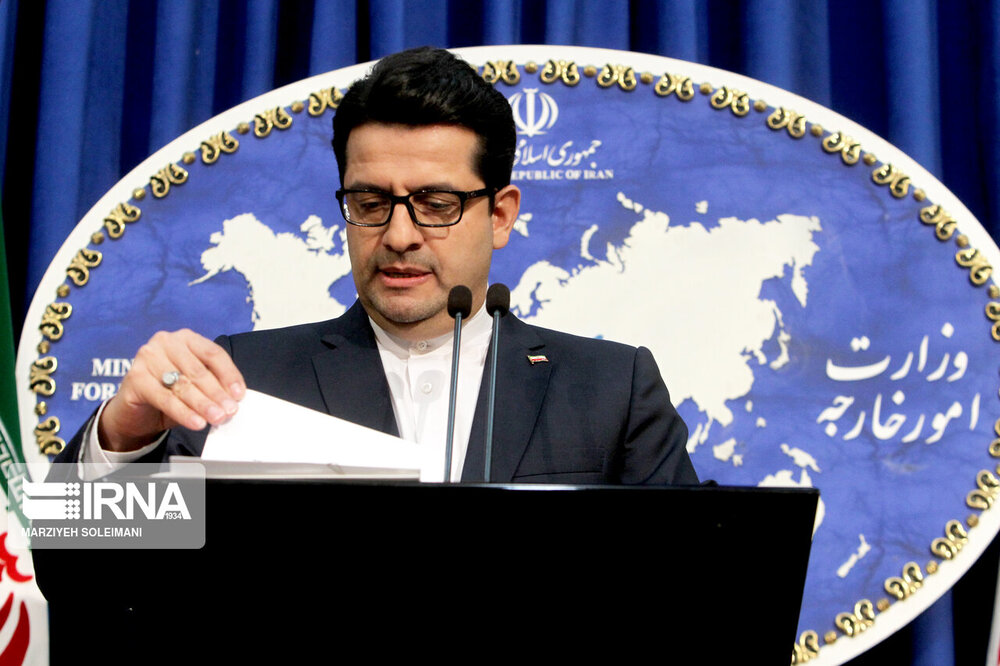Iran says Washington waiting in vain for a phone call

TEHRAN - Foreign Ministry spokesman Abbas Mousavi said on Sunday that Washington is waiting in vain for a phone call by Iranian officials.
“It has been a long time that they are waiting for Iran to do such thing which is in vain, because Iran will not initiate a negotiation in which international law is not respected,” he said.
Pointing to the U.S. economic pressure against Iran, he said, “No wise man negotiates when he is under pressure and a gun is pointed at him.”
Foreign Minister Mohammad Javad Zarif said in July that Iran will not negotiate under pressure, suggesting that the United States must first stop “economic terrorism” against Iran if it seeks negotiations.
“Negotiation under pressure has never been possible. They must stop pressure and economic terrorism against Iran and after that they can talk about implementing the JCPOA [the 2015 nuclear deal],” Zarif remarked.
President Hassan Rouhani said on May 20 that U.S. claims of seeking negotiations with Iran are “mere lies”.
The U.S. has the illusion to force Iran into submission by introducing the worst ever sanctions on the country, Rouhani remarked.
Leader of the Islamic Revolution Ayatollah Ali Khamenei said during a meeting with Japanese Prime Minister Shinzo Abe in June that Iran has “no trust” in the United States and will not at all “repeat the bitter experience” it gained from the negotiations that led to the conclusion of a 2015 nuclear deal, which Washington later ditched.
He dismissed U.S. President Donald Trump as a person not worthy of a response or a message, stressing that negotiations with Washington cannot help solve any problem.
During a meeting with authorities on May 14, Ayatollah Khamenei also said, “Negotiating is poisonous as long as the U.S. continues with the same course of action; besides, negotiating with the current government of the United States is all the more poisonous.”
‘U.S. is fearful of Zarif’s voice’
In another statement on Sunday, Mousavi said that Zarif is “commander of diplomacy” and the U.S. is fearful of his voice.
The remarks by Mousavi came as the U.S. is reportedly trying to limit Zarif’s access to social media such as Twitter.
In separate statements on July 31, the U.S. Treasury and State Department announced imposition of sanctions against Zarif, a move which was interpreted as a total rejection of diplomacy repeatedly claimed by the Trump administration. The decision followed after Zarif, while in New York for a UN meeting, rejected an invitation to meet Trump at the Oval Office.
Majid Takht Ravanchi, Iran’s permanent representative to the United Nations, wrote a letter to UN Secretary General Antonio Guterres on August 6 protesting the U.S. sanctions on Zarif, saying that this move signifies a “gross violation” of the UN Charter.
The move has been criticized by the world.
Ugochi Daniels, the United Nations Human Settlements Program Coordinator and Resident envoy to Iran, has said that Zarif is “champion of multilateralism”.
“In my encounters with Zarif, he has, on multiple occasions, emphasized the importance of multilateralism; he is a champion of multilateralism,” IRNA quoted her as saying in an interview published on Saturday.
NA/PA
